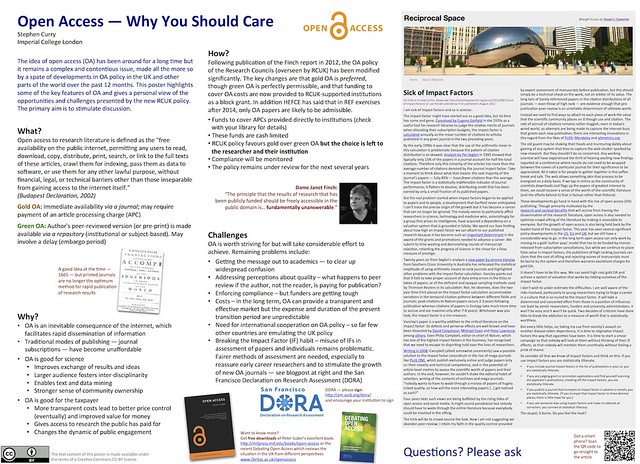
Dear Publishers Association I ask that you amend the open access decision tree you created for incorporation into the guidance notes accompanying the Open Access (OA) policy announced by Research Councils UK (RCUK) in 2013. It may seem odd to ask for a correction so late in the day but my reasons for doing so are two-fold.


